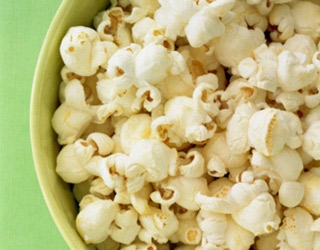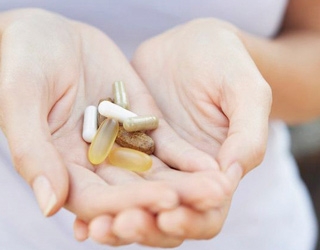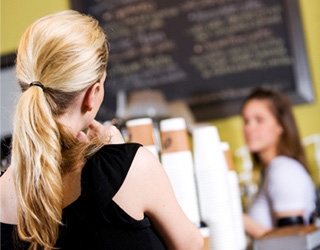6 Tips for Managing PMS
While it may be hard to skip your morning java, some research suggests that the effects of caffeine are magnified premenstrually, leading to greater breast tenderness, more nervousness, and potentially more irritability. Instead of coffee, tea, or caffeinated soft drinks, try herbal teas and other decaffeinated beverages while experiencing symptoms of PMS.

Drink chamomile tea
Premenstrually, chamomile tea may be particularly helpful because it contains properties that relieve muscle spasms, and may therefore help reduce the severity of menstrual cramps. (And who would turn down a little relief?). In addition, chamomile seems to reduce tension that may lead to anxiety and irritability, helping combat the mood changes experienced during PMS. Chamomile tea is naturally caffeine-free, so it’s an ideal choice to replace some of your favorite caffeinated beverages when your period is approaching.

Follow Good Mood Advice
Moodiness is a classic symptom of PMS. All the good-mood advice about getting appropriate amounts of exercise, eating regularly throughout the day, getting the right mix of proteins and high-quality carbohydrates, and decreasing stress apply to PMS as well. These lifestyle changes will help all help control irritability and mood swings. What you eat can also affect your mood! For suggestions on the best mood-friendly Food Cures, check out my Foods to Boost Your Mood!

Avoid Salt and Salty Foods
PMS causes bloating and water retention — and so does salt. Ergo, salt can make those problems of PMS worse. It’s best to avoid the saltiest offenders like canned soups and vegetables, deli and processed meats, salty condiments (like soy sauce and bottled salad dressings),and snacks like chips, crackers and pretzels — and of course you’ll want to skip the salt shaker at meal time. Instead opt for foods rich in calcium (reduced–fat dairy products, fortified soy milk, broccoli, tofu, and almonds) which can help beat bloat during this time of the month.

Get Enough Sleep
Hormonal shifts can make some women lose sleep, which in turn may make them irritable. It is generally important to get enough sleep to level out moods. Premenstrually, sleep becomes crucial. Try your best to get seven to nine solid hours of Z’s per night. Many women even feel the need to nap during the premenstrual week — if you can manage a quick few minutes of sleep in the middle of the day, indulge. It may make the difference between a good day, and a day of snapping and tears.

Consider Supplements
There are many supplements out there, many of which claim to combat symptoms typical of PMS like mood swings, irritability, cramps, and bloating. If you experience PMS and want to consider supplements in addition to food fixes, check out my recommendations for supplements that may help ease your pre-period woes.
Want to know more about fighting PMS with food? Check out these food cures.

Skip the coffee
While it may be hard to skip your morning java, some research suggests that the effects of caffeine are magnified premenstrually, leading to greater breast tenderness, more nervousness, and potentially more irritability. Instead of coffee, tea, or caffeinated soft drinks, try herbal teas and other decaffeinated beverages while experiencing symptoms of PMS.

